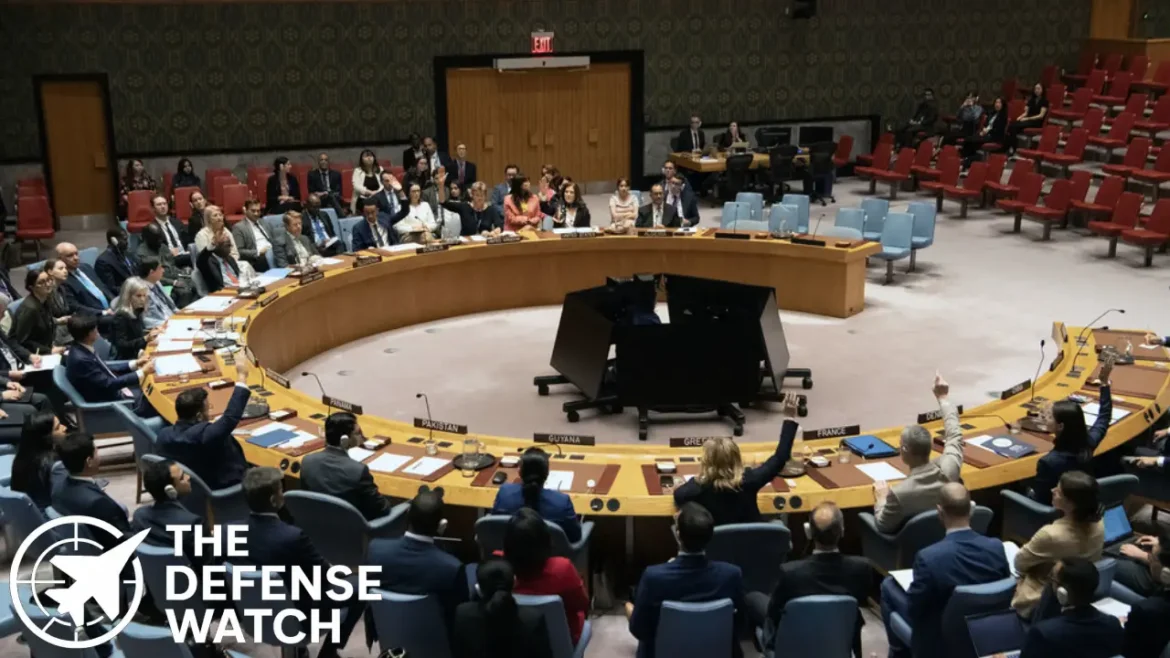What Happened: Venezuela Seeks UN Session After US Strikes
Venezuela has formally requested an emergency session of the United Nations Security Council, following a series of recent U.S. military strikes on vessels suspected of drug trafficking in Caribbean waters. In its submission, Caracas warned that an “armed attack” could occur against the country in the “very short term.”
The request was lodged on Thursday, October 9, 2025, and the UNSC meeting was scheduled for Friday afternoon at 3 p.m. local time.
Background: Rising Military Tension in the Southern Caribbean
Over recent weeks, the U.S. has significantly escalated its maritime and aerial presence in the southern Caribbean region, citing intensified operations against drug trafficking networks.
Since early September 2025, U.S. forces have conducted at least four lethal strikes on vessels alleged to be carrying narcotics. The total number of casualties reported across these operations is 21 individuals.
The U.S. government frames the campaign under a broader policy shift treating drug cartels as “unlawful combatants,” thereby justifying military engagement beyond traditional law enforcement measures.
Venezuelan authorities have long questioned Washington’s use of counter-narcotics as cover for broader strategic aims—including regime pressure—especially amid large-scale U.S. naval deployments near Venezuelan maritime approaches.
Details & Reactions
Venezuela’s Position and Appeal
Samuel Moncada, Venezuela’s U.N. Ambassador, said in a letter to the Russian UN ambassador (then serving as Security Council president), that U.S. actions risk violating Venezuela’s sovereignty and that “the belligerent action and rhetoric of the U.S. government … objectively point to … a situation in which … an armed attack is to be perpetrated.”
Caracas also accused the U.S. of seeking regime change, arguing that drug-war justifications mask the strategic goal of seizing control over Venezuela’s natural resources.
At the U.N. meeting, Venezuela’s envoy described U.S. claims about internal cartel collusion as a disinformation campaign aimed at criminalizing Venezuelans.
U.S. Defense and Legal Justification
At the Security Council gathering, U.S. Political Counsellor John Kelley defended the strikes, emphasizing that the U.S. was using its “full might” to fight drug trafficking.
Peter Hegseth, U.S. Defense Secretary, asserted he holds “absolute and complete authority” for these operations—citing constitutional, war-powers, and self-defense rationale.
However, critics argue the U.S. has not publicly disclosed evidence showing the vessels were carrying drugs, or that their crews posed imminent threat.
International Voices & Responses
At the session, Russia’s U.N. envoy Vassily Nebenzia strongly condemned the U.S. strikes, calling them violations of international law and accusing Washington of preparing an invasion.
China’s UN envoy echoed the concerns, criticizing unilateral U.S. enforcement operations and warning of harm to freedom of navigation and global norms.
Some U.N. Security Council members—France, Greece, and Denmark—called for de-escalation and legal scrutiny of the operations.
Panama and Colombia also voiced concern, emphasizing that drug threats should be addressed through multilateral cooperation rather than militarized intervention.
Colombian President Gustavo Petro, in particular, accused the U.S. of killing Colombian nationals in the strikes—though Washington has not publicly confirmed the identities of the victims.
Expert & Policy Lens
Legal scholars point out that maritime interdiction by one state of vessels flagged by or linked to another sovereign must satisfy rigorous standards under international law—including authorization under the UN Convention on the Law of the Sea (UNCLOS) or a UN mandate. Without such basis, critics argue, the U.S. risks breaching sovereignty and maritime norms.
Analysts also note the mismatch between the heavy naval arsenal deployed and the counter-narcotics mission: destroyers and amphibious assets are overkill for drug-boat interdiction, suggesting strategic signaling may be as important as operational effect.
Finally, the lack of transparency around target selection and assessment amplifies the credibility gap—fueling suspicion that the policy serves multiple geopolitical goals in addition to drug interdiction.
Impact & What’s Next
Venezuela’s appeal to the UN marks a tactical escalation into the diplomatic arena, aiming to rally international legal pressure on Washington.
The Security Council deliberations may force more scrutiny of U.S. rules of engagement and legal posture in maritime counter-drug operations.
But unless the U.S. provides stronger legal justification or backing from allies, its operations risk deeper diplomatic backlash and potential isolation in multilateral fora.
In Venezuela, the perceived threat may be used to rally domestic support, intensify military readiness, or even pursue counter-measures in regional waters.
Over the coming days, key developments to watch include whether the Security Council issues a resolution, whether the U.S. discloses evidence of its strikes, and whether other Latin American governments join or oppose Caracas’s stance.
Source 1 | Source 2 | Source 3

